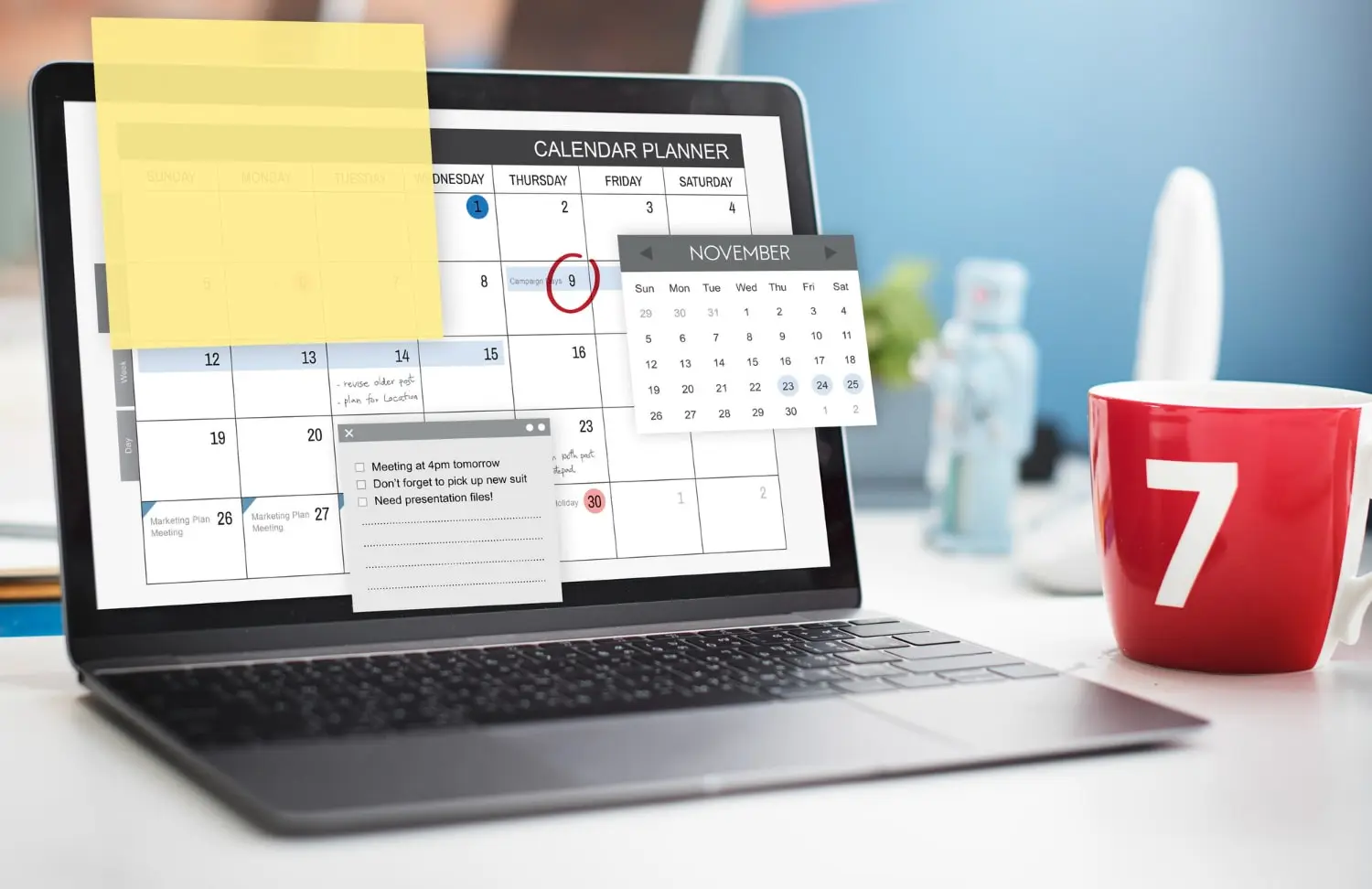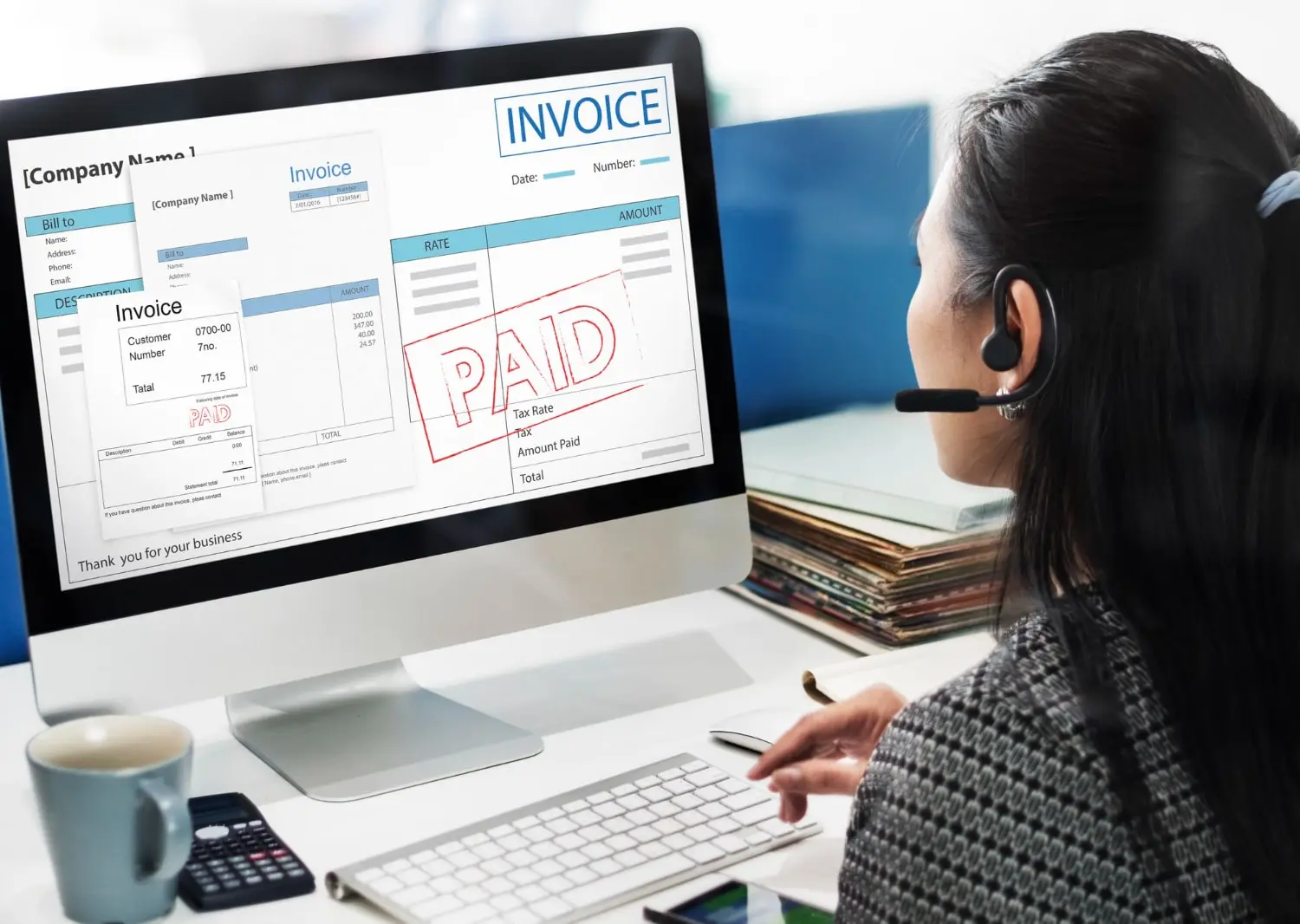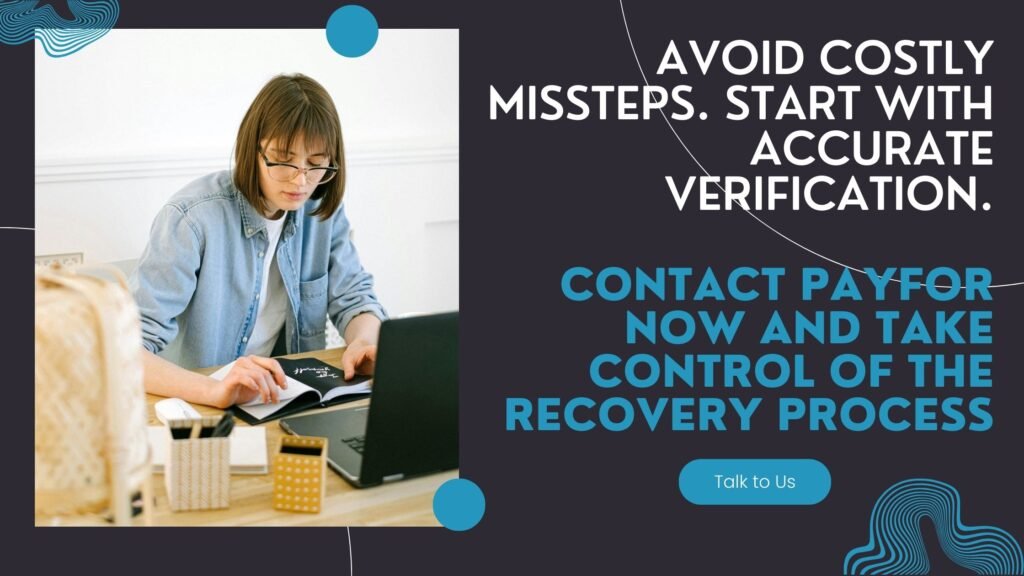How to Chase an Overdue Invoice and How to Implement Effective Reminder Systems
Sep 29, 2025

Chasing an invoice is a crucial yet often uncomfortable task for many businesses and freelancers. Timely payment is essential for maintaining healthy cash flow, yet late payments are a common issue that can disrupt financial stability.
Navigating the process of following up on overdue invoices requires a balance of professionalism and persistence. It's important to approach the situation diplomatically to preserve client relationships while ensuring that your business remains solvent.
These are the practical strategies and tips on effectively chasing an invoice. We'll cover each step in detail, from initial reminders to escalating the situation if necessary.
The Process of Chasing an Invoice
Timely follow-up on outstanding invoices can prevent late payments and reduce the risk of bad debt. However, the process needs a structured approach that involves several stages, from early contact with the client to more assertive measures as payment deadlines approach and pass.
Early Contact and Collecting the Necessary Information
Early contact is crucial in invoice-chasing, as it sets the foundation for timely payments. By proactively reaching out to the client, businesses can ensure that all necessary information is gathered, reducing the likelihood of delays and misunderstandings.
- Identifying the correct contact person
To begin with, it is essential to identify the correct individual responsible for payments within the client's organisation. This can be done by contacting the general office or reception, and asking for the finance or accounts payable department. Having the right contact information is vital to ensure that the inquiry reaches the appropriate person without unnecessary delays.
- Collecting invoice requirements
The next step is to understand the client's specific invoice requirements. Each client may have unique needs regarding invoice formats, required documentation, and submission processes. It is important to ask the client what details must be included on the invoice, such as purchase order numbers, project codes, or VAT information. Ensuring all this information is correct and complete will help prevent the invoice's rejection or delay.
- Vendor onboarding process
Some clients may require a vendor onboarding process before processing any invoices. It is important to check if this is necessary and complete any required steps as early as possible. This might involve submitting business credentials, bank details, or compliance documents. Completing the vendor onboarding process promptly ensures that there are no administrative barriers when the invoice is issued.
- Informing about upcoming invoice
This step includes informing the client that an invoice will soon be issued. This proactive approach sets clear expectations and helps the client prepare for the upcoming payment. Communicate the expected timeline for the invoice issuance and payment terms, and ensure the client acknowledges receipt and understanding.
Before Due Date Chase Step
This stage involves communication with the client to confirm receipt of the invoice and to establish an expected payment date. It helps identify potential issues early on and sets the stage for a seamless payment process.
Invoice Receipt Confirmation: To begin, it is essential to confirm that the client has received the invoice. This confirmation helps prevent misunderstandings or delays arising from missing or incorrect information.
- Start by sending a follow-up email or making a phone call to the client’s accounts payable department.
- Politely ask if they have received the invoice and verify that it has been forwarded to the correct person for processing.
- Ensure the invoice is in the correct format and includes all required details, such as purchase order numbers, service descriptions, and due dates.
Estimating Payment Date: Once receipt of the invoice is confirmed, the next step is to ask the client for an estimated payment date. Inquire politely about when the payment is expected to be processed and if any internal approval steps might affect this timeline. Having a clear timeline for payment is crucial as it allows for better cash flow management and helps in planning subsequent follow-ups if necessary. Understanding the client’s payment cycle can provide insights into when payments are typically made, aiding in future invoice management.
Early Overdue Chase
The early overdue chase helps create a sense of urgency and responsibility in clients, ensuring that they adhere to agreed-upon terms. It involves proactive measures to remind clients of their pending obligations and reinforce the importance of adhering to payment deadlines.
Initiating a follow-up a few days before the due date is an effective strategy to ensure the client is prepared to pay on time. This reminder jogs the client's memory and allows them to address any last-minute issues that might delay payment. By sending a courteous reminder, businesses can avoid the awkwardness of overdue payment conversations and foster a cooperative relationship with their clients.
It is also essential to reinforce the importance of timely payment. Clear communication about the significance of meeting payment deadlines can help clients understand its impact on the business's operations. This is the right time to politely but firmly warn of the potential consequences of non-payment. Mentioning deadlines and any applicable late fees or penalties can prompt the client to prioritise the payment.
Overdue and Late Overdue Chase
Prompt and strategic action is essential when payments are late to encourage clients to settle their debts without delay. By maintaining consistent communication, businesses can effectively manage overdue and late overdue invoices, ensuring that payments are received without significant delays and minimising the need for external intervention.
- Initial Overdue Follow-Up: When a payment becomes overdue, the first step is to contact the client immediately. This should be done with a friendly yet firm approach, emphasising the importance of settling the outstanding invoice promptly. The goal is to remind clients of their obligations without damaging the business relationship.
- Using Escalation Tools: Escalation tools may be necessary if initial follow-ups do not result in payment. Pausing contracts or delaying further deliveries can incentivise the client to prioritise the overdue payment. Applying late payment penalties can underscore the seriousness of the situation and encourage faster resolution. If these measures are ineffective, considering legal action may become necessary. These steps should be communicated clearly to the client, outlining the potential consequences of continued non-payment.
Using Different Communication Channels
Effective invoice chasing involves using a variety of communication channels to ensure timely payments. Each channel has its unique advantages and can be utilised at different stages of the invoice-chasing process. A multichannel approach increases the likelihood of reaching the client and obtaining the necessary response.
Emails should be concise, polite and include all pertinent details about the invoice, such as the amount due, the due date, and any relevant payment instructions. This method is particularly useful for creating a documented trail that can be referenced in future communications or disputes.
- Telephone Calls
Making direct phone calls adds a personal touch to the invoice-chasing process. It allows for immediate interaction, which can more effectively resolve issues or answer questions. Maintaining professionalism during calls is essential, as it reflects the company's image and can influence the client's willingness to cooperate.
- SMS and WhatsApp
Using SMS and WhatsApp for quick reminders can be highly effective, especially for clients who prefer instant messaging over more formal methods. These messages should be concise and to the point, ensuring that the client understands the urgency without feeling overwhelmed. This approach can be particularly useful for last-minute reminders or when other channels have not elicited a response.
- Mixed Channels
Combining different communication channels increases the chances of successful invoice chasing. By tailoring the approach based on the client's preferences and previous responses, businesses can ensure they use the most effective method for each situation.
Tools and Technologies for Managing Reminders in Overdue Invoices
Implementing an effective reminder system helps ensure that invoices are paid promptly and reduces the strain on the business’s finances. This involves not just sending out reminders but doing so efficiently, professionally, and with respect for client relationships.
With the advent of digital technologies, businesses can now leverage various tools to streamline the reminder process and improve the efficiency of their accounts receivable (AR) management.
Invoicing and Accounting Software
Invoicing and accounting software are indispensable tools for contemporary businesses, offering a comprehensive solution to manage financial transactions. Popular software options include:
- QuickBooks: Renowned for its user-friendly interface and robust features tailored for small to medium-sized businesses.
- Xero: Offers cloud-based accounting services with a strong emphasis on integrations and real-time financial monitoring.
- FreshBooks: Ideal for freelancers and small business owners, FreshBooks provides straightforward invoicing and expense tracking solutions.
- Zoho Books: A versatile platform known for its affordability and extensive integration capabilities with other Zoho products.
These software solutions typically include features that can significantly enhance reminder systems for overdue invoices:
- Automated reminders: Most invoicing software allows businesses to set up automatic reminders that are sent to clients at pre-defined intervals. This reduces the manual effort required and ensures timely follow-ups.
- Customisable templates: Businesses can use and modify predefined email templates, ensuring consistent and professionally presented reminders.
- Payment tracking and alerts: Real-time payment tracking enables businesses to monitor invoice status and receive alerts when payments are overdue.
- Integration with payment gateways: Facilitating easier and quicker payment options directly from the reminder emails, thereby encouraging faster client response.
- Dashboard and reporting: Comprehensive dashboards and reporting features provide insights into the AR status, highlighting overdue invoices and the effectiveness of the reminder system.
In-house Excel Spreadsheets - Payfor’s Expert Advice
When properly formatted and integrated with other systems, simple Excel spreadsheets can be incredibly effective tools for managing accounts receivable. An expert in Excel can design spreadsheets that streamline AR processes, ensuring accuracy and efficiency. These specialists can create custom formulas and macros to automate repetitive tasks, reducing the likelihood of human error. Integrating Excel with other financial systems allows data to be easily synchronised, providing real-time updates and comprehensive financial overviews.
Excel's versatility allows for tailored reporting, enabling businesses to generate detailed AR reports that meet their specific needs. These can include ageing reports, payment tracking, and forecasting, all of which are crucial for maintaining healthy cash flow. The visualisation tools in Excel, such as charts and graphs, can help present data in an easily understandable format, facilitating better decision-making.
It also allows setting up alerts and reminders within spreadsheets to ensure timely follow-ups on outstanding invoices. This proactive approach helps minimise late payments and improve overall collection rates. Additionally, Excel's accessibility means that this powerful tool can be used without the need for expensive software or complex training.
While there are many advanced AR management platforms available, the simplicity and flexibility of Excel, when handled by a skilled specialist, can offer a robust solution for businesses looking to optimise their accounts receivable processes.
Customer Relationship Management (CRM) Systems
Customer Relationship Management (CRM) systems are designed to manage a company’s interactions with current and potential customers. They play a pivotal role in tracking client interactions related to overdue invoices by:
- CRMs store comprehensive client information, including payment histories, communication logs, and past interactions, all of which are crucial for managing AR.
- Every email, phone call, or meeting related to invoice reminders is logged, providing a complete follow-up record.
- CRMs can segment clients based on their payment behaviours, allowing for tailored reminder strategies for different groups, such as frequent late payers versus occasional late payers.
Dedicated Reminder Platforms
Dedicated reminder platforms are specialised tools focused specifically on managing reminders for overdue invoices. These tools are designed to streamline the follow-up process. Examples include:
- Chaser: A platform that automates the chasing of unpaid invoices with customisable email templates and schedules. However, based on our experience, the main issue with Chaser and similar platforms is that automated emails often end up in spam, so monitoring your domain health constantly is crucial. Additionally, emails sent to clients are altered with a strange ".com.sv1" suffix, causing concern as they might be mistaken for phishing or scam attempts.
- CollBox: Integrates with accounting software to automate reminders and also offers options for debt collection services if necessary.
- Invoiced: Provides a comprehensive AR management solution with features for automating reminders and payment collections.
Manual vs. Automated Reminders
Choosing between manual and automated reminders depends on several factors:
| Pros | Cons | |
| Manual Reminders |
|
|
| Automated Reminders |
|
|
For the best outcomes, businesses should consider integrating both manual and automated reminder systems. This hybrid approach combines the efficiency of automation with the personal touch of manual communication.
Implementing Robust Reminder System
The first step in implementing a reminder system is identifying which invoices are overdue. This involves regularly reviewing your accounts receivable to flag invoices surpassing payment due dates. Use your accounting software to automate this process, setting it up to instantly notify you of overdue payments. Accurate identification is crucial as it triggers the entire reminder sequence.
Once overdue invoices are identified, the next step is to schedule reminders. It’s essential to establish a systematic schedule that determines how frequently reminders should be sent.
Common practice includes sending the first reminder shortly after the due date, followed by subsequent reminders at progressively shorter intervals until the payment is received or further action is required. The timing should be carefully balanced to avoid overwhelming the client while still emphasising the urgency of the payment.
Effective Communication Strategies
Customisation of reminder messages is vital for maintaining a professional relationship with your business clients. The tone should be polite but firm, reinforcing the need for prompt payment without damaging rapport. The content of the message should clearly state the amount due, the original due date, and any potential late fees or consequences for non-payment. Including a copy of the invoice can also be helpful.
Consider the medium through which reminders are sent. While emails are most common, incorporating SMS reminders or follow-up phone calls can enhance effectiveness. Select the medium that best aligns with your client’s preferences and the nature of your business relationship.
It is crucial to strike the right balance in your communication. Reminders should convey a sense of urgency and the importance of timely payment while remaining courteous and professional.
- If the invoice remains unpaid, begin with a friendly tone and gradually adopt a firmer stance in subsequent reminders. Use clear and concise language to avoid any ambiguity.
- Avoid aggressive language or undue pressure that could alienate the client or damage your business relationship.
- Highlighting mutual respect and the importance of maintaining a good partnership can often encourage prompt payment without resorting to a hard-line approach.
- An effective reminder system often incorporates a tiered approach, where the intensity and formality of reminders increase over time. This graduated system starts with gentle reminders and progresses to more assertive follow-ups.
- Initial reminders might include a friendly nudge, while subsequent tiers could involve stronger language and mention of potential consequences, such as late fees or suspension of services.
Knowing when to escalate reminders is critical. Typically, escalation occurs after a specified number of reminders have gone unanswered or after a certain period has elapsed without payment. The escalation method could involve sending a formal demand letter, involving a higher-level manager in the communication, or even considering legal action if necessary. Each step should be clearly defined in your AR policy, ensuring that escalation is handled
Legal Considerations and Ethical Practices
Navigating the legal and ethical landscape of managing overdue invoices requires a nuanced approach that balances compliance with effective communication. It's essential to approach this task with a strong awareness of legal requirements and ethical standards.
Follow the below steps for sending reminders for overdue invoices, ensuring that businesses can pursue payments effectively while upholding their reputation and compliance with regulations
- Compliance with data protection laws
- Avoiding harassment and unfair practices
- Transparency in communication
- Adherence to payment terms
- Legal recourse and dispute resolution
- Respectful and professional communication
- Consistent but reasonable follow-ups
- Avoiding automated harassment
- Transparency with automated systems
- Fair resolution processes
- Avoiding public disputes
Chasing overdue invoices takes time and persistence, but with Payfor’s proven methods, you can recover payments faster while protecting client relationships. Contact us today to see how we can help your business get paid on time.
Disclaimer:
This blog post is intended for informational purposes only and should not be construed as legal advice. The information provided in this post is based on general principles and may not apply to specific legal situations. Laws and regulations vary by jurisdiction and can change over time. Readers are advised to seek professional legal counsel before making any decisions based on the information provided in this blog post. Payfor Ltd is not a law firm and does not provide legal services. The company disclaims any liability for actions taken based on the contents of this blog post.
More Blogs & Insights

How to Chase an Overdue Invoice and How to Implement Effective Reminder Systems

What is the AR Process Workflow and Should you Automate it?

Is It Time to Outsource Accounts Receivable? 5 Signs to Look For and a Cost-Benefit Analysis

Accounts Payable vs Accounts Receivable Key Differences Explained

Comprehensive Guide on Debtor Days Calculation: Formula, Examples and Strategies

How to Handle Business Invoice Disputes With Clients?

What is Accounts Receivable and the Equation for Net Accounts Receivable

The Impact of AR Delays and Strategies for Efficient Accounts Receivable for Spanish Businesses

What is DSO: Learn How to Improve Payment Speeds

How Currency Fluctuations Complicate International Debt Collection

Phoenixing vs Insolvency: Knowing the Difference Could Save Your Business Thousands

Why Small Businesses Are the Biggest Victims of Late Payments in 2025

How Payfor Secured €600,000 for a Ukrainian Tech Firm Against a UK Giant

Spotting Compliance Gaps in Debt Collection Before They Cost Your Business

The Dangers of Partnering with a Debt Collection Agency Without Real Legal Backing

How to Overcome Language and Cultural Hurdles in International Debt Collection

Why Too Much Paperwork Hurts Debt Collection Results

What a Good Recovery Rate Really Looks Like in Global Debt Collection Agencies

How Overcomplicated Debt Collection Processes Delay Your Payment

How Poor Debtor Tracing Damages Your Reputation and Delays Recovery

Why Some Debt Collectors Fail After First Contact and How to Ensure Full Recovery

The Problem with One-Size-Fits-All Debt Collection Strategies and How to Get Better Results

Why You Should Be Concerned If Your Debt Collector Doesn’t Give Regular Updates

The Risks of Misidentifying Debtors in International Debt Recovery and How to Prevent Them

How to Avoid the Costly Mistake of Aggressive Debt Recovery Without Pre-Action Steps

Why Paying Upfront to Other Debt Collectors Often Leads to Bigger Losses

How US Investors Can Recover Money from Failed International Joint Ventures

The Best Way for American Exporters to Collect from Foreign Buyers

How US Businesses Can Recover International Debts Without Expanding Their Legal Team

Recovering Debts After a Business Acquisition or Merger

Understanding the Commercial Debt Collection Struggles Faced by Startups

How Payfor Recovered a $780,000 Hollywood Merchandising Dispute

How an Indian Software Developer Got Paid with Help from Payfor
Payfor was able to collect the outstanding debt by negotiating a resolution between the two companies.

What is Corporate Recovery? How to Recover a Six-Figure Corporate Debt
A Comprehensive Guide to Collecting £100k-£250k Unpaid Invoices from International Businesses

How a Ukrainian Tech Company Secured Payment from a Saudi Debtor
The Ukrainian company had done everything they needed...

Why Most Commercial Debts Remain Unpaid Despite Hiring a Lawyer

How a Portuguese Recruitment Firm Recovered 80% of Its Outstanding Invoices
A recruitment company based in Portugal was owed money from clients in the UK, Portugal and Germany.

$750,000 Production Loan Default Recovered Through Payfor Legal Recovery

How Payfor Recovered a $450,000 Location & Equipment Rental Dispute for a Hollywood Client

The Psychology Behind Legal Recovery and Why It Works

What Legal Recovery Looks Like with Payfor on Your Side

When Debt Collection Fails and Legal Action Becomes the Only Way Forward

Hollywood Insurance Claim Dispute Worth $510,000 Resolved with Payfor’s Help

Securing Payment for Unpaid Post-Production Services Worth $430,000

How We Overcome Frustrating Debt Collections
A Welsh SaaS business was owed money by a London financial services company.

What is Global Debt Collection?
Global debt collection is when a collection agency or company actively tries to collect debts from debtors across international borders.

Commercial Debt Collection Laws in the UK: A Comprehensive Guide
Understanding the legal framework governing commercial debt collection is paramount for both creditors seeking restitution and debtors aiming to protect their rights.

How to Collect Debt From a Business That Repeatedly Refuses to Pay What They Owe
At the start of the Covid Pandemic in the UK early 2020, companies started owing each other money left, right and centre…

How Payfor Helped a Hollywood Studio Recover $612,000 in Sponsorship Fees

How Payfor Helped Resolve a $750,000 Box Office Revenue Sharing Dispute in Hollywood

How Payfor Helped Resolve a High-Value Hollywood IP Infringement Case

How Payfor Resolved a $620,000 Dispute on a Hollywood Distribution Agreement

How Payfor Recovered a $750,000 Talent Payment for a Hollywood Actor

Can You Recover Debt from a Defunct Company? What to Know About Insolvency and Liquidation

What Happens After a Court Judgment? Debt Enforcement Stages Explained

Resolving a $190,000 Licensing Dispute Between Two Record Labels

How Payfor Helped A Record Label Recover Six-Figure Copyright Infringement Damages

How Payfor Helped Recover Over $400,000 in Unpaid Royalties for a New York Record Label

How Payfor Supports Energy Sector Clients in Recovering High-Value Debts

Additional Actions Payfor Pursues Without Further Notice

What Payfor Does If a Debtor Doesn’t Pay Within 5 Days

Legal Recovery for Ad Agencies Left Hanging After Production

Why Delaying Legal Action Can Weaken Your Case

The Dangers of Legal Action for Debtors

Introducing Our Enhanced 30-Day Chase Campaign

How Payfor Recovered $500,000 from an Elusive Debtor in UAE

The $1 Million Debt That Payfor Recovered When Everyone Else Had Given Up

The Three Essential Stages of Effective Debt Collection

Why Debtors Respond to Us When They Ignore Everyone Else

Why Debt Recovery in the Construction Industry Is So Complex—And How to Overcome It

Is Debt Recovery Always Aggressive? Debunking the Myth

£100,000 Recovered from a French Startup by UK-Based Technology Company

The True Cost of Unpaid Invoices for UK Businesses

$120,000 Recovered from a California-Based Tech Giant for an Israeli Software Firm

When Is a Debt Truly Unrecoverable? Knowing When to Write It Off

Top 5 Debtor Excuses We Hear All the Time—And How We Handle Them Professionally

When to Escalate: Signs It’s Time to Hire a Debt Collection Agency

The Psychology of a Debtor: Why They Delay—and How to Get Paid Faster

How Debt Collection Agencies Are Evolving in a Tech-Driven World

Why Businesses Worldwide Trust PayFor with Their Debt Recovery

What Businesses Are the Most Vulnerable to Debt?

7 Skills Every Successful Debt Collector Must Have

How Debt Recovery Agencies Work Within Regulatory Frameworks

What to Expect When Hiring a Debt Collection Agency

A Costly Lesson in Market Vulnerability

How We Recovered a SaaS Subscription Debt Without Litigation

How Persistence Secured a $36K Software Debt Recovery

When a Strong Contract Isn’t Enough: Navigating a Disputed £35K Recruitment Debt

Helping a Global IT Company Recover £37K from a Venture-Backed Biotech Firm

Turning a 600-Day Debt Stalemate into a Strategic Settlement

Leveraging Legal Pressure in a Recruitment Fee Dispute Against a New Jersey Real Estate Development Company

Cloud Infrastructure Billing Dispute between a Global Server Platform and a Ukrainian IT Company

Strategic Recovery in a Cross-Border Financial Dispute between a Ukranian App Developers and a Dublin-based Piracy Protection Platform

Effective Debt Recovery for a London-Based IT Firm

Successful Debt Recovery for a Silicon Valley Software Company

How to Effectively Manage Overdue Payments with Debt Collection Agency

How No Win No Fee Arrangement Works in Debt Collection

Balancing Recovery and Customer Retention in Business Debt Collection

The Evolution of Commercial Debt Collection Practices

Legal Considerations in Commercial Debt Collection Cases

Cereal Entrepreneurs: Mastering the B2B Debt Collection Game

4 Successful B2B Debt Collection Cases

How Commercial Debt Collection Services Help Large Corporations

Top 5 Challenges in B2B Debt Collection and How to Overcome Them

How to Collect Debt From a Business That Repeatedly Refuses to Pay What They Owe?
Coping with a business that repeatedly refuses to pay its debts can significantly impact your cash flow and hinder your company's growth.

Out-of-Court Settlements for Ukrainian Businesses Commercial Debt Collection
As enterprises strive to maintain cash flow and financial stability, resolving commercial debt disputes efficiently becomes crucial for Ukrainian businesses.
How to Track Down a Debtor That’s Gone Missing?
Tracking down a missing debtor can be challenging, but several effective methods can increase your chances of success.

How the Letter Before Action Works in Commercial Debt Collection
One of the most effective tools at a creditor's disposal is the letter before action (LBA). This formal notice is a precursor to legal proceedings and offers a final opportunity for debtors to settle their obligations without court intervention.

Steps to Take Before Engaging a Debt Collection Agency
Hiring a commercial debt collection agency can be immensely helpful for businesses facing challenges in recovering outstanding debts. Professional agencies possess the expertise and resources necessary to efficiently manage business debt recovery.

How to Deal With Reactions to Your Commercial Debt Demand Letter?
Learn how to effectively manage and respond to a range of reactions received following the issuance of your commercial debt demand letter.
Business Debt Collection Best Practices for Israeli Tech Businesses
As the Israeli tech industry thrives on continuous development and investment, managing outstanding debts efficiently becomes crucial to ensure that financial stability is not compromised. Implementing best practices for debt collection tailored to each firm's unique needs can significantly mitigate these risks.

What is Commercial Litigation?
Defined as the legal process of resolving business-related conflicts through the court system, commercial litigation covers many issues - breach of contract, business torts, shareholder disputes, and intellectual property disagreements.

Commercial Debt Collection for Small and Medium Enterprises (SMEs) in Ukraine
Small and medium enterprises (SMEs) play a crucial role in Ukraine’s economic growth and job creation. However, many SMEs grapple with cash flow challenges due to market fluctuations.

The Role of Professional Debt Collection Agencies for Ukrainian Businesses
In Ukraine's dynamic business scene, managing outstanding business debts is challenging and can strain resources.

Best Strategies for Commercial Debt Management: Advice From an Expert
In today's competitive landscape, businesses must navigate complex financial relationships while balancing cash flow and creditor obligations.

How to Recognise Early Warning Signs of Business Debtors?
Recognising the early signs of a potential debtor is crucial for maintaining a business's financial health. Many companies encounter clients who, despite initial promises, fail to uphold their payment obligations, which can significantly impact cash flow and operational stability.

How Can You Recover a Debt in the US When You Are in Portugal?
Distance, legal disparities, and practical hurdles create complexities for Portuguese businesses seeking to recover commercial debts from businesses in the United States.

Commercial Debt Collection Laws for Ukrainian Businesses
Ukrainian businesses frequently grapple with managing financial obligations and recovering debts. The legal framework for commercial debt collection is vital for maintaining economic stability and fair market practices.

What to Do When a Client Cancels a Business Agreement?
When a client cancels a deal, it can significantly disrupt your business operations, impacting both your financial stability and strategic planning.

International Commercial Debt Collection Laws Explained
International debt collection involves pursuing debts from debtors in different countries - a challenge heightened by diverse legal systems, cultures, and language barriers.

What Happens If You Lose a Commercial Debt Collection Lawsuit?
Unpaid debts can pose significant challenges to business financial stability. When traditional methods fail to resolve these outstanding dues, companies may take legal action, such as a commercial debt collection lawsuit.

When to Use a Commercial Debt Collector?
Businesses often face challenges in recovering payments from clients or customers when managing outstanding debts.

How Long Can You Legally Be Chased for a Commercial Debt in the UK?
In the UK, the statute of limitations for pursuing a commercial debt is typically six years, starting from the last acknowledgment or payment date.

What is Commercial Debt Factoring in Business?
Companies often seek innovative solutions for cash flow management and financial challenges, such as commercial debt factoring, where accounts receivable are sold to a third-party factor at a discount.

How to Recover a Commercial Debt in the US When You Are in Israel?
If you are an Israeli business seeking to recover a commercial debt owed to you in the United States, it's essential to understand the intricacies and procedures involved in such a pursuit.

Legal Procedure for Commercial Debt Recovery
Commercial debt recovery can be a complex and challenging process for businesses. From unpaid invoices to overdue payments, encountering debtors unwilling to settle outstanding dues is a common predicament.

How Do Businesses Benefit From Offshore Jurisdictions?
Offshore jurisdictions like Switzerland and the Cayman Islands are a prevalent strategy for companies engaged in commercial debt collection or aiming to enhance their financial and tax planning initiatives.

How Do You Write a Demand Letter for Commercial Debt?
Unpaid business debts can be challenging for commerce businesses. When traditional debt collection methods fail, turning to legal recourse becomes necessary.

How to Avoid Late Payments in B2B Transactions?
Late payments pose a significant challenge for businesses, impacting cash flow, profitability, and overall financial stability.

Commercial Debt Statistics: Facts and Numbers
Commercial debt plays a vital role in business finances, acting as both a driver for growth and a potential indicator of a company's financial stability.

Why Payfor Is Different From Other B2B Collection Agencies?
Unlike other agencies, Payfor prides itself on its unique approach to commercial debt recovery, blending industry expertise with a commitment to client satisfaction.

How to Calculate Business Debt: A Comprehensive Guide
Understanding and accurately calculating business debt is essential for maintaining financial stability and making informed decisions.

How to Recover a Debt in the US When You Are in Egypt?
Given the geographical and legal barriers, recovering a debt in the United States while residing in Egypt can present a formidable challenge.

What are Commercial Debt Collection Challenges for Startups?
Startups often encounter unique hurdles when it comes to recovering owed funds. From establishing effective credit policies to navigating legal complexities, startups must navigate myriad obstacles to ensure timely payments and maintain financial stability.

Negotiation Tactics in Debt Recovery: The Psychology of Persuasion.
Commercial debt recovery is an essential, yet intricate, facet of business operations that requires an amalgamation of skills—from legal understanding to business acumen.

How to Recover Debt in the US When You're in Ukraine?
Navigating the complexities of debt recovery across international borders presents unique challenges for businesses, particularly when seeking to recover debts owed in the United States while operating from Ukraine.

Is Legal Recovery the Answer When Your Business is Owed Money Across Borders?
When your business faces the challenge of recovering owed money from companies operating across international borders, legal recovery emerges as a strategic imperative.

How Do Commercial Debt Collection Recovery Campaigns Work?
Commercial debt collection recovery campaigns are intricate processes designed to retrieve outstanding debts owed by businesses to creditors.

Why Jurisdiction Is the Most Critical Factor in Commercial Debt Collection?
When it comes to commercial debt collection, one question often trumps all others: "What is the key most important factor when chasing a debt?"

What is the Difference Between Arbitration and Issuing Legal Proceedings/Litigation?
The choice between arbitration and litigation is a pivotal decision that can shape the course of dispute resolution.

What is Amicable Recovery?
Amicable Recovery is a consensual and cooperative debt collection method that aims to settle outstanding payments without resorting to judicial measures. This process often commences with a courteous reminder, followed by mutually beneficial negotiations, in an effort to secure payment.

What is Jurisdiction in Global B2B Debt Collection?
Jurisdiction determines the legal authority and framework within which commercial debt collection efforts can be pursued across international borders.

How to Determine if a Debtor is Solvent Enough to Repay Debt: An Expert Guide
In the intricate world of commercial debt collection, one of the most challenging yet imperative tasks is assessing the solvency of a debtor.

Small Business Debt Collection: A 7 Point Guide
This guide covers seven key points, ranging from understanding legal frameworks to negotiating payment plans. It equips small business owners with the knowledge and tools necessary to successfully pursue outstanding debts.

What is Commercial Debt Collection?
Commercial debt collection is when a third-party agency recovers unpaid debts owed by one company to another. The recovery agency contacts the company owing the debt requiring it to pay the debt.

What Are Commercial Debt Collection Challenges for US Companies?
Commercial debt collection presents myriad challenges for US businesses, including complex jurisdictions and contractual elements.

How Much Debt Should a Business Have?
Striking the right balance between business debt and equity is paramount for maintaining financial health and sustaining growth.

Commercial Debt Collection Challenges and Solutions for Ukrainian Businesses
In today's economic climate, Ukrainian companies encounter many obstacles when recovering commercial debts.

How is Bad Debt Defined in Business: A Short Explanation
The term "bad debt" holds significant importance for businesses and can often signal trouble for enterprises of varying sizes.

What is a Creditor in Business?
A creditor is a party that has provided goods, services, or monetary resources to a business on credit, expecting repayment within an agreed timeframe.

What is a Commercial Debt for Business?
Commercial debt is the amount of money one business entity owes to another for goods or services provided on credit terms.

What Should Businesses Expect From a Modern-Day Debt Recovery Agency?
Modern debt recovery firms are redefining industry standards by offering strategic financial solutions alongside traditional collection efforts.

How to Safeguard Your Business: Expert Tips for Choosing Reliable B2B Partners and Clients
In today's rapidly evolving business landscape, establishing robust B2B partnerships and securing dependable clients are pivotal to achieving growth.

What Are Commercial Debt Collection Challenges and Solutions for UK Companies?
Navigating the complexities of commercial debt recovery in the UK presents many challenges that demand a strategic understanding and adept handling.

A Comprehensive Guide to Commercial Debt Collection for AI Companies
As AI businesses often market their technology globally, cross-border trade is a notable challenge they face.

How Does Commercial Debt Collection Work for Recruitment Companies?
As recruitment agencies strive to connect employers with suitable candidates, the issue of outstanding payments can become a common challenge for them.

What are Debt Collection Agencies: Their Role in Financial Recovery
The debt collector is mainly an agency creditors hire to recover money owed by businesses that have failed to make timely payments on their debts.

Commercial Debt Collection Issues for IT and Software Development Companies
The billing models, project timelines, and evolving client requirements create an environment where debt recovery becomes a complex and nuanced process for IT and Software development companies.

Business Debt Collection Etiquette: How to Preserve B2B Relationships
In the ever-evolving landscape of business, maintaining positive relationships with other companies is crucial for long-term success. However, as businesses engage in commercial transactions, they may encounter instances where debtors are not forthcoming, acting in bad faith, or having a hidden agenda.

What is a Debtor in Business: Essential Guide
Commercial debtors, in essence, refer to entities that owe money to a business for goods or services provided. This financial relationship forms a critical component of the broader commercial ecosystem, shaping a business's cash flow dynamics and overall financial health.

What to Do if a Company Owes You Money: Resolving Unsettled Debts
In a business relationship, there might be situations where a company owes you money, and the path to resolution may not always be clear. When faced with this challenge, it's crucial to approach the situation with a level head and a strategic plan.









